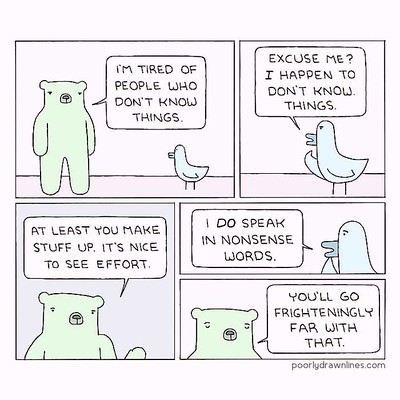 Moans Sabine (5:25 in the video), in the context of GW. The answer of course is because that's what the system rewards; it's what the people demand. People want "to do something" about GW - or at least, that's what they'll answer in any survey you give them, because they know that's the right answer. But paying for it, in direct financial terms or by changing behaviour is a different matter. So "performative" politics - people saying nice things but postponing action into the indefinite future - is the default for any long-term problem1. Hence, targets - which are targets for the future, not now - are popular.
Moans Sabine (5:25 in the video), in the context of GW. The answer of course is because that's what the system rewards; it's what the people demand. People want "to do something" about GW - or at least, that's what they'll answer in any survey you give them, because they know that's the right answer. But paying for it, in direct financial terms or by changing behaviour is a different matter. So "performative" politics - people saying nice things but postponing action into the indefinite future - is the default for any long-term problem1. Hence, targets - which are targets for the future, not now - are popular.The other issue is that these targets are always in the context of a command economy, which we don't have and don't want. Trying to do it amounts to pushing jelly. Tellingly, at the end (5:45) our hostess wonders what she would do if she were in charge, and decides she would step down: she doesn't have any actual ideas.
This is the Carbon budgets and carbon taxes stuff come again. And the answer is the same.
Addendum: based on a pub conversation today, I realised I've missed off "so what will happen, given that the plans are bullshit?". My best guess is that rather than a superheated hellscape, we'll end up with solar and wind becoming cheaper and us switching to that, not as fast as possible but faster than the no-govt-action plans predict. See-also footnote 4 at my review of Climate Schlock.
Notes
1. See-also national debt, pensions, and so on.
Refs
* RealClimate: New journal: Nature 2023?
* ATTP is A bit inactive… (yes, I trimmed his ellipsis. There are rules, you know).
* The 100th Anniversary of One of America's Worst Laws—the 1924 Immigration ActThe 100th Anniversary of One of America's Worst Laws—the 1924 Immigration Act.





